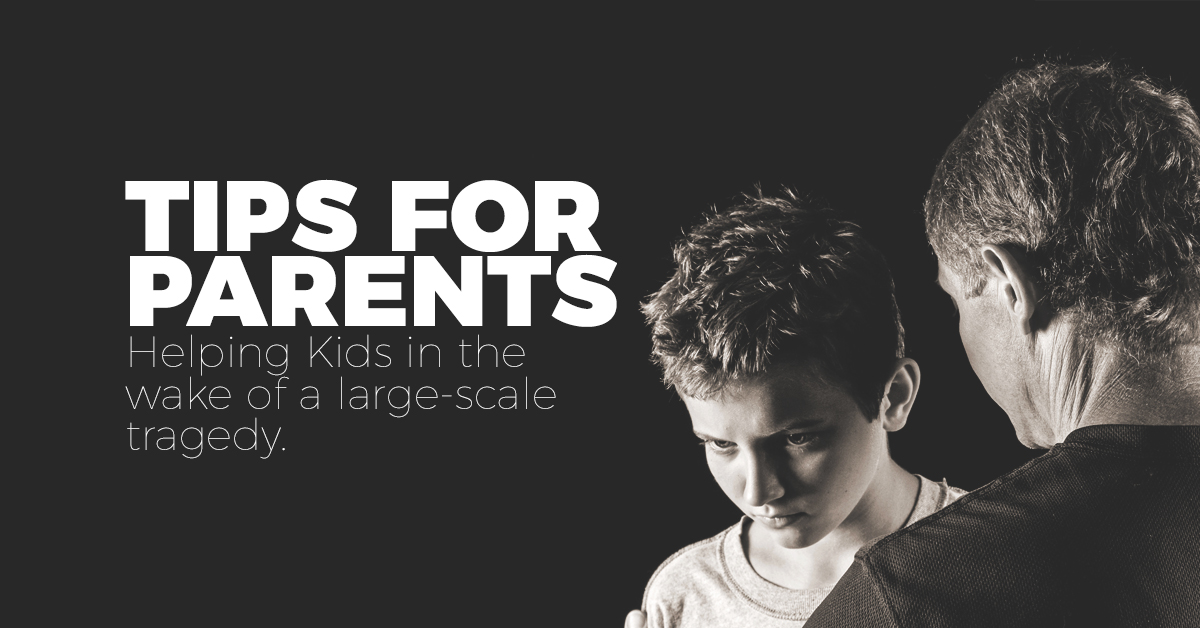
Following the mass shooting in Las Vegas, KidsPeace’s Jodi Whitcomb discussed ways parents can help their kids deal with such large-scale traumatic events:
When large-scale acts of violence occur, it is difficult for ANYONE to process. How can we make sense of something so extreme and horrifying? If adults feel this way, imagine how much more challenging it may be for the children in our lives.
While every child (and every adult) reacts differently to extraordinary events like these, common reactions can include:
- Sleep and/or eating problems
- Sadness, tearfulness
- Fear, anxiety, worry
- Irritability, anger
- Nightmares
- Headaches, upset stomach
- Trouble focusing, feeling “numb” or “fuzzy”
- Not wanting to go to school
- Not wanting to leave their “comfort zone” (with whomever or wherever that is)
- Being “okay” at first but then “breaking down” unexpectedly
- Wanting to avoid the situation or talk about the situation
It is normal for these symptoms to persist for a few weeks, and then subside a little bit at a time. But keep in mind that some people will take longer to begin feeling better.
Typically speaking, individuals who are geographically closer to the event, or individuals who are in some way emotionally connected to the event, will have a stronger reaction than others. However, today both traditional and social media can bring extremely realistic representations of a traumatic event to a much wider audience than in the past. That means people who live in other states, for instance, may feel stronger effects of the trauma.
And do not underestimate the power of “vicarious traumatization,” which means being traumatized by watching something, looking at pictures, or by listening to the telling of a story over and over.
What parents can say and do to help:
- Limit exposure to media relating to the event.
- Talk to your child about what happened, but don’t give them information they do not need. Answer what they ask and nothing more. (Example: “Mom, did anyone die?” “Yes, it’s sad, but some people did die.” It’s not necessary to give details.)
- Let your child be your guide. Listen to what they have to say. Let them talk. Validate their emotions.
- Be tolerant and understanding of worry, fear, sadness and anger. Be prepared to deal with these emotions and remind yourself that they are normal responses given the circumstances.
- Do whatever you can to make your child feel safe and secure.
- Take care of yourself. As parents, we can’t help our children if we aren’t taking care of our own needs.
 If symptoms like those listed above do not improve, or get worse, it’s time to see a mental health professional. Reach out to the guidance department at your child’s school or call your child’s pediatrician. You or your child may also like to visit www.teencentral.net or www.parentcentral.net for more resources.
If symptoms like those listed above do not improve, or get worse, it’s time to see a mental health professional. Reach out to the guidance department at your child’s school or call your child’s pediatrician. You or your child may also like to visit www.teencentral.net or www.parentcentral.net for more resources.
The KidsPeace Critical Incident Response Team provides support and critical incident stress debriefing to individuals and groups in the wake of traumatic events. In addition to leading the CIRT, Jodi Whitcomb serves as Director of Organizational Development & Training at KidsPeace.



